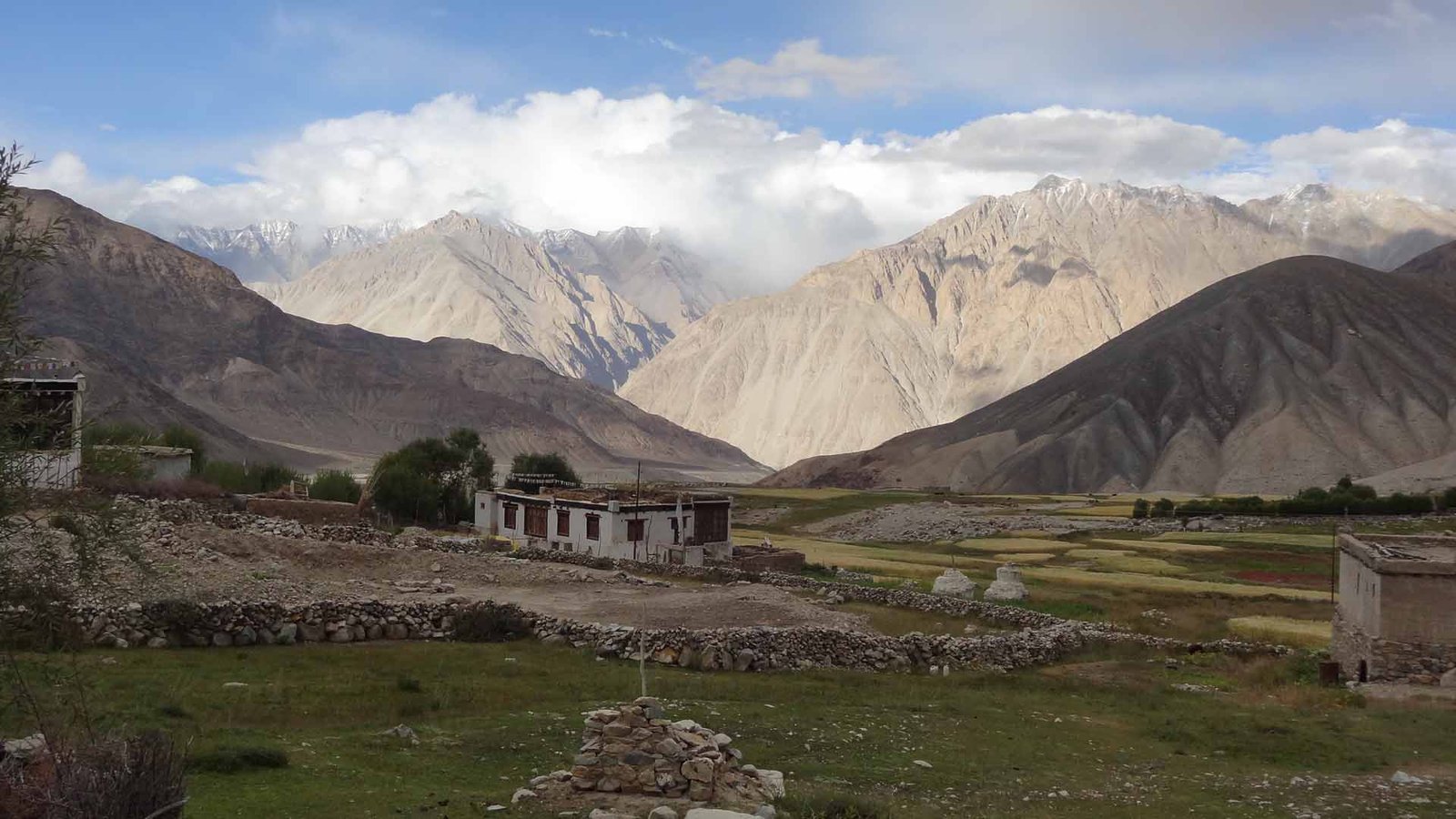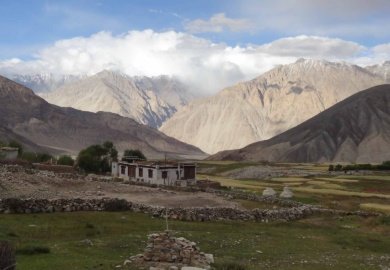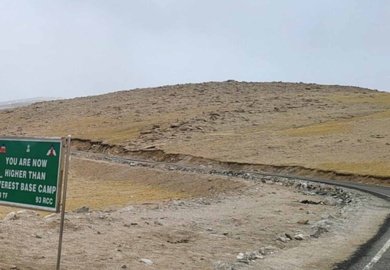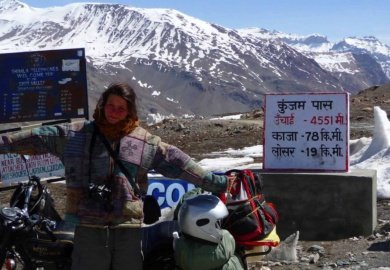A coast-hugging day on foot: sunrise at Nai Harn, tide-pool dawdles at Ao Sane, windmill lookout lull, and a slow glide into Promthep Cape’s gold hour.
Summer 2024, and my passport was a smudge of airports: Thailand first, then Bali, then Malaysia later; a solo itinerary written in pencil and sweat. I had come to the south end of Phuket to practice a slower kind of movement one day, one coastline, one pair of legs, letting the shore draw the line and my feet trace it. The plan was beautifully uncomplicated: start with dawn at Nai Harn, idle at Ao Sane among the tide pools until the sun made its point, amble up to the Windmill viewpoint for a noon lull of shade and wind, and keep walking the ridge to catch Promthep Cape when gold hour convinces even hurried people to breathe.
I staged the day the way a cook lays out a simple mise en place. Night-before: filled bottle; rash guard and reef-safe sunscreen; a battered hat with the memory of other suns; a tiny “sins bag” for plastic corners and tangles of fishing line; a soft towel; a pen and a postcard to myself. I slept with the window open to the raw hum of Rawai engine notes dim, a gecko auditioning in the rafters, a late conversation in Thai whose vowels made better lullabies than the hotel playlist ever could.
Before 5 a.m., my alarm performed a small mistake. I was already awake.
1) Nai Harn: a day invents itself
In the blue before morning, the lane to Nai Harn smells like jasmine that learned to shout politely. The casuarina trees along the shore used their needle leaves to comb the wind. Runners traced thin loops around the lake the earliest, the most devout while on the beach the water wore its rehearsal face: flat, tin-colored, receptive. I walked barefoot through sand that still held night’s temperature and took a front-row seat where the shore agrees to be wet.
Dawn here is first a rumor, then a negotiation, and then suddenly, too late to be modest, light. The horizon passed through its shy stages pewter surrendering to a diluted guava, a sliver of saffron, and finally the warm gold that allows the day to ask for more of you. A fisherman waded chest-deep, holding his net like a stanza he knew by heart. Three elderly women synchronized and kind did stretches that looked like revision rather than exercise; they had edited their mornings for decades until the form fit like a second skin. A dog patrolled the wrack line with a seriousness that outperformed most security guards I’ve met.
I swam at the first lift of light, a short parallel to the shore with a spare rhythm: five strokes, breath, six strokes, breath; salt reading the sleep off my face. No heroics the Andaman does not care for declarations just a body inviting the day under the skin. On my back, I drifted and watched frigatebirds etch easy lines above the headland. For a minute I thought of Bali, where a different ocean writes in harsher black, and Penang, where the straits glitter like a city’s pocket change; then the gentle cold at my wrists reminded me: here. The daily miracle of a warm sea making new arrangements with light, and the privilege of witnessing without making announcements.
By the time I toweled off, the beach was learning its daylight grammar. Vendors rehearsed the choreography of umbrellas; a monk in orange gathered alms in a bowl that made no sound; breakfast carts tested their burners and their jokes. I traded coins for a paper cup of khai jiao over rice egg fried wrong in all the right ways, edges furious, center pleased with itself and a plastic spoon I didn’t want. The vendor saw me hover and reached for a metal one without a word. Island hospitality is often an intuition that beats you to saying please.
The first rule of a coast-hugging day: begin with thank-you for the shade that will later save you, for the water that will later demand you be careful, for legs that will turn three places into one conversation.
2) Ao Sane: the slow verbs of tide pools
The track to Ao Sane threads behind the northern end of Nai Harn, slipping through a seam of shade and a short climb past the resort where gardeners already negotiated with bougainvillea. Ao Sane is a pocket beach in three paragraphs of sand and boulder, the color of a well-kept secret. The tide was polite neither possessive nor stingy leaving behind puddled worlds on flat rock tables where an entire childhood could have been lodged.
Tide pools are where geology and patience throw each other a party. I crouched and let the small theater cast itself:
- Periwinkles marched without haste, a slow parade that ignored borders.
- Hermit crabs switched apartments the way people move cities, dragging everything they can’t admit is unnecessary.
- Brittle stars wrote Morse under rocks I did not lift; some lives deserve their dark.
- Pistol shrimp performed with their sound turned down tiny plumes of sand, the rumor of clicks.
- A damselfish juvenile flashed electric, a blue so willful my hand felt reprimanded for even thinking of shadowing it.
- Sea cucumbers practiced the art of being easily underestimated.
- A sea urchin reminded my toes to stay diplomatic.
I didn’t touch, didn’t rearrange, didn’t curate. I practiced being surface looking, not improving. A child nearby announced each find to a patient father who knew better than to correct the taxonomy of joy. “A star!” the child said, pointing at a chiton. “Also a star,” the father agreed, upgrading wonder over accuracy. We will need children like that later, when the world asks for voters who remember tide pools.
When the sun arrived fully, brute and sure, I pulled on a rash guard and slipped off the boulder into water that instantly edited my internal temperature. Snorkeling here is a polite intimacy: rocks tufted with algae, chairs of coral you do not touch, parrotfish with small opinions, butterflyfish with their fussy stripes. I left the fins at home to spare the shallows; knees bent, feet quiet, hands tucked, breath making a metronome in my ears. The day’s first longtail burred toward the headland, and I pressed close to the rock until the churn settled. Respect is an action verb.
Back on the boulders I ate a banana from my pocket and read three pages of a book I’m still pretending to finish. Ao Sane is a good place to fail to read. Shade drifted slowly clockwise. Two French dive students practiced mask clearing in the shallows with theatrical sneezes and patient instructors. A woman with a spiral tattoo on her calf laid out a towel like a treaty, a demarcation between repose and salt.
The second rule of a coast-hugging day: respect the small. It is a winning habit that later fits everything else you’ll meet.
3) The slow climb: wind on the shoulder
By late morning the boulders retained heat like faith. I took the path back toward Nai Harn and up the road, keeping to the side and waving impatience past. The hill that leads to the Windmill viewpoint is more coax than demand; switchbacks polite enough for scooters, honest enough for calves. Traffic has its manners: delivery bikes; a pickup carrying water; a tourist car that learned how to yield; an uncle on a Honda Dream who loved his horn, though it mostly loved him back by squeaking.
I climbed with stillness in my shoulders, letting my breath find a gear that wouldn’t embarrass me later. The turnouts offered intermittent rehearsal views Nai Harn like a proscenium, Yanui already practicing its tropical brochure, the horizon a thick pencil line I could feel with my teeth. Halfway up, a coconut stall rested in the reliable shade of a tree that has learned how to be generous. The vendor, a woman with a laugh that carried better than her English, tapped a green globe with a machete’s shy cousin and poured cold sweet water into a plastic cup she washed exactly as I hoped she would basin, quick rinse, not into the road. I returned the cup as if it were a document.
At the windmill saddle, gusts took a more active interest in the afternoon. Wind here is not a single thing; it is sequencesthe cool undercurrent that travels the contour, a warmer shove slipping over the ridge, a brief pause as if the air had a thought, then a new sentence. Kitesurfers below traced small inventions on Nai Harn’s left corner, kites like friendly punctuation in an essay about weather.
The turbine turned with a giant’s patience. A wedding photographer fussed with veil and horizon; a chorus of cousins perfected the art of neither helping nor hindering. The ice-cream cart man rang his bell politely as if to add kindness to the list of sensible sugars. I took a benign nap on a bench under the generous palm of a tree, the page of my book making a half tent over my face. Wind pulled at the edges, then let them go, as if checking my pulse.
To be honest: the day could have ended here and I would have called it success skin salted but not scolded, legs awake, mind quieter than arrival. But Promthep Cape held the day’s thesis, and the ridge flared its green path forward as if daring me to keep the rule: walk it all.
4) Ridge to Promthep: small borders, small mercies
From the Windmill the path becomes a spine left shoulder to Nai Harn, right shoulder to Yanui and the farther Andaman. The vegetation practiced a rugged minimalism: coarse grasses; thorny shrubs that insist on their personality; an occasional tree that has survived weather by refusing to be a metaphor. The sun began its day-long argument with shade, and I sided with shade when given the choice.
I stopped at the spirit house half hidden in green. There are shrines along this coast that receive respectful offerings as if they were little government offices of luck; this one wore faded marigold garlands and a few uneaten coins of mango. I stood outside the boundary and did the Thai thing poorly but sincerely palms together, head inclined, a moment of being a visitor whose manners are still under construction. The wind did not mock me.
A pickup of teenagers hooted past on the road; one called out “where you go?” in the kind of English that is equally welcome and performative. Promthep, I answered, pointing with a whole hand, the way everyone here points. A chorus of thumbs-up returned. I love a place where thumbs-up is still the correct punctuation.
The goats near the lower ridge had escaped the idea of ownership for the afternoon and nipped at shrubs like people at a buffet. Their bells made a small music that lifted the ridge from view to conversation. Over the hill, Yanui glinted with swimmers, and a longtail etched a temporary axis out toward the reef. Above, cloud tossed scraps of possible weather and then withdrew the offer.
At Promthep, as always, the crowds were pre-decided by the hour. Sunset is a magnet, but arrive two hours early and you get to see the Cape remember itself before the ceremony begins. I ducked into the little cluster of shops behind the parking lot and bought a water from a stall where the auntie styled prices as invitations, not arguments. Then I walked out to the lighthouse, culturally dubious but visually unoffensive, and continued down the dusty path that curves toward the actual promontory, reef shoes finding the logic in the sand and rock.
There is a lower ledge not secret, not overrun which has the temperament of a patient dog. Most tour groups do not descend because heels are poor allies here. I went down, slow and loyal to my ankles. From there the view slackened and widened. The cape threw its arm around the sea and the sea allowed it. I found a rock with the right angle and let the hour travel through me.
5) Gold hour: the day writes itself a letter
Gold is a tired word until you are asked to name something that spills from sky to water and back again in a color you could drink. The light at Promthep is less a hue than a recalibration. Everything that was clear becomes kind; everything that was bright becomes articulate. The grasses turn their undersides to the last wind and show silver; the rocks agree to be warmer; faces upridge soften into versions more forgiving of their own stories.
Boats outside the headland became a calligraphy of silhouettes. On Nai Harn’s breast, kites drooped and then were furled. A thin line of cloud tried to write the last word and failed elegantly, becoming a scrim through which the sun rehearsed its departure. Thirty meters to my left, a couple took turns being foreground to each other. Two kids argued about the superiority of mango sticky rice vs. roti banana a debate for the ages, certainly older than whatever the sun has been up to. The auntie who sold me water earlier walked down with a basket of pineapple sealed in plastic and, just before I felt guilty about trash, produced a bin from nowhere and tied the bag herself, a gesture that anticipated my questions and dismissed them.
I scratched a sentence into my notebook: The day asks nothing except that you notice what it does to you. I’m embarrassed by how often I resist generous imperatives.
A breeze came harder, then kind, then gone. Minute to minute, the Andaman changes its mind. That is not fickleness; it’s a genius for revision. As the sun touched the ocean with its old theatricality, there was no applause. The best audiences know to be quiet. The light broke into peaches and russet, then plum, then ink. The ridge behind me murmured, a small collectivity of people discovering that they had sat still for an hour, a feat most of us forget we can accomplish.
There’s a rumor called the green flash a tiny prism at the last second when light does a party trick on the horizon. Did I see it? If I tell you yes, you’ll want one too; if I tell you no, it sounds like I wasn’t paying attention. I will say: the last light had a clean edge, and then it didn’t, and my breath took an extra step and then remembered how. Good enough.
Blue hour came with relief. Colors stop trying and out comes shape. The lighthouse, the palms, the ridge line; the small lamps behind the shops; scooters becoming crickets; crickets becoming a promise that night would do what it always does here arrive without trouble.
6) Coast in reverse: night earns its soft noise
I didn’t sprint the return. I lifted, I waved, I stepped aside on narrow bits for the people who do not know that sunsets do not need chasing after they end. The ridge back to the Windmill had less traffic, more breath. A songthaew idled at the viewpoint, green bench seats tasting of salt and age. I kept walking: down is a new grammar. Knees negotiated, ankles supervised; toes remembered their civic duties.
At Yanui I stopped to rinse sand off my feet in the little freshwater trickle that keeps the roadside fern alive; a tiny crab skittered from my toes and then bravely returned to judge me. Night was coming fast. Nai Harn’s restaurants were switching their neon on, one by one, like a sentence being emphasized to death; I cut through the dark patch of lake pathinstead, where runners had surrendered the track to moths and one couple gently arguing about where to eat. At the beach, the last towels were folded like flags after a parade.
Rawai welcomed me back with squid lamps green islands on the horizon saying quietly that work continues when the shore returns to leisure. I bought pad kaprao with a fried egg at a corner stall that had unambiguous opinions about garlic and chilies. The cook asked, with the mercy of someone who has seen mistakes, “Pet mai?” Spicy? I gave a middle-aged reply and was rewarded with the perfect burn. I ate at a plastic table while the lane kept its democracy of scooters, pickup trucks, and conversations that start without preamble.
I had walked the day. My calves preached their sermon of righteous fatigue; my skin, a tidy biography of sun and salt; my pockets, lighter except for the sins bag, heavier than it should ever be. I handed it to the guesthouse receptionist with a request for the correct bin. She nodded like a judge accepting evidence and said khop khun ka with a smile that made me want to be a better neighbor to all things.
7) The day’s small kit of ethics (quietly useful, not performative)
I don’t like lists at the end of stories, but I like what they do to future mornings. So here’s a pocket code I wrote for myself on the way back:
- Take the path that already exists. Do not invent a new desire line on fragile slopes because your thighs want novelty.
- Reef-safe sunscreen, rash guard, no fins in the shallows. You are not correcting the ocean; you are borrowing it.
- If a tide pool looks like a world, treat it like one. Look, don’t rearrange. Rocks are roofs.
- Carry a sins bag. One zip pouch for plastic corners, line, butts you didn’t smoke. The shore is your temporary living room; clean the coffee table.
- Ask for metal spoons, return them. Plastic is a story that never ends well.
- Water is a practice. Buckets over showers back at the room. Drinks refilled, not re-bottled.
- Give the wedding photographer more room than you think they need. They are making a future’s favorite memory; don’t be in it.
- Say “julley” with your body. (Wrong language; right idea.) Polite steps. Doors soft. Thumbs-up, sometimes.
- Leave the cape earlier than the crowd. Let your feet have blue hour alone on the ridge. The car park will be its own music; you don’t have to be first chair.
None of this is saintly; all of it is basic hygiene for shared beauty.
8) Wanderlines: Thailand now, Bali later, Malaysia after
A day like this becomes a unit of measure between places. In Bali, I will climb the stairs down to a black-sand cove and watch the water drag light under its arm in a way that feels like history. In Penang, I will walk Love Lane to Armenian Street at dusk and see gold hour behave like a shopkeeper counting the till brisk, precise, warm. I will think about Nai Harn’s dawn as a gentle edit to mornings I thought I knew; I will compare Ao Sane to a Balinese tide pool near Uluwatu where hermit crabs write commas in volcanic punctuation; I will wish Langkawi had a ridge that allowed wind to speak the way it speaks between Windmill and Promthep.
But comparison without gratitude is theft. Today belonged to Phuket, to its particular greens coarse grass, palm, banana, pandan; to its blues steel at 5 a.m., teal at 10, blue you cannot name at 3, ink at 7:10; to its yellows egg yolk, mango flesh, the religious intensity of a certain late light. To its people’s daily competence, the smiling math that keeps a coast livable for both those who leave at night and those who sleep beside it.
9) The last walk: room, shower, pen
Back in the room, I did the bucket bath I’ve learned to prefer two kettles into cool, a mug on the shoulder, soap where labor earned it, hair every other day. I wrung the towel with the meditative precision of someone who knows this cloth will be asked to dry again tomorrow and deserves respect. The mirror didn’t fog; the day’s sweat took its leave.
On the balcony I wrote the postcard to myself: “From Nai Harn dawn to Promthep dusk,” the title and the truth. I noted the frequencies the day had tuned heart slower, eyes larger, mouth quieter. I taped the sins bag shut because that felt like a ritual and made sure the corner with the fishing line was folded inward. I put the hat on a chair and told it it would be needed right after sleep.
Night around the guesthouse was a polite party clink of glass, a laugh blown sideways, a scooter considering second gear. I slept like somebody who had done one thing correctly from morning until dinner.
Epilogue: What the coast taught, in a day the size of a body
A coast-hugging day is a lesson in scale. The sea is a unit too large to pretend to understand; the beach is a geometry you can keep pace with; a tide pool is a manual you can read without pretending to be its author. I started small at Nai Harn one breath, one horizon; I went smaller at Ao Sane one tide pool, one periwinkle; I lifted into larger at the Windmill one ridge, one system of winds; I allowed immensity at Promthep one sun, one ocean performing respectful theater.
Travel, this summer of 2024, had arranged itself like this Thailand teaching me to walk slower along water, Bali teaching me to respect the grammar of waves that do not care for me, Malaysia about to teach me how cities earn their dusk. But the south edge of Phuket gave me the day I hope to carry farthest: a morning that became a shoulder that became an edge that became a page being turned.
If I strip the day to portable instructions, I get: begin early, stay curious, touch nothing that didn’t ask, keep a hand free for someone else’s trash, let wind change your mind, arrive before the crowd, leave with less noise. If I strip it further, I get: notice.
When I think of Nai Harn now, it is the silver run of first light on water and the permission to swim without witnessing myself. When I think of Ao Sane, it is the fat contentment of a sea cucumber and the way a child’s taxonomy can keep a world intact. When I think of the Windmill, it is the turbine turning a giant behaving while people below drop their shoulders for an hour. When I think of Promthep, it is the easy discipline with which a sun does its job and asks me to do mine: be present, be gentle, be done.
Whatever I learn in Bali next, however Penang rearranges my appetite, this single line from dawn to dusk, along a coast, on foot will be the day I test new places against. Not to win, not to tally; only to remember how walking beside water teaches a person to belong to where their feet are, exactly as long as their feet remain there.





